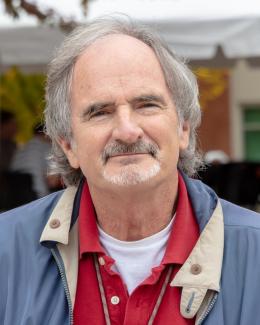OAK RIDGE, Tenn., May 13, 2015 – Four researchers at the Department of Energy's Oak Ridge National Laboratory are among 44 scientists selected by DOE's Office of Science to receive funding under the department's Early Career Research Program.
The grants, which are intended to support researchers during their crucial early career years, are at least $500,000 per year for national lab researchers to cover year-round salary plus research expenses over a planned five years.
ORNL's winners fall within three major Office of Science program offices: Advanced Scientific Computing Research (ASCR), Basic Energy Sciences (BES) and Fusion Energy Sciences (FES). Following are ORNL's selectees and brief descriptions of their projects.
Christian Engelmann, who works in ORNL's Computer Science and Mathematics Division, was selected for his project, titled "Resilience Design Patterns: A Structured Approach to Resilience at Extreme Scale" (ASCR).
Increased numbers of components at smaller scale and with varying power are expected to create more errors on future supercomputing systems. Engelmann's project will increase the ability of scientific applications to reach accurate solutions in a timely and efficient manner. Using a novel design pattern concept, it identifies and evaluates repeatedly occurring resilience problems and coordinates solutions throughout high-performance computing hardware and software.
Cory Hauck, also of the Computer Science and Mathematics Division, was selected for his project, titled "Hybrid Methods for Complex Particle Systems" (ASCR).
Hauck's project is focused on the development of hybrid, hierarchical and multilevel algorithms for the simulation of complex, many-particle systems toward a single algorithm for attacking multiscale problems. Such systems are key components in a variety of energy generation and energy storage devices.
Katharine Page, a researcher in the Neutron Sciences Directorate, was selected for her project, titled "Exploiting Small Signatures: Quantifying Nanoscale Structure and Behavior" (BES).
Page's project will apply neutron scattering methods to uncover the links in nanostructure between surface chemistry, particle morphology and internal crystal structure in several functional materials families. Structural details at the atomic and nanoscale govern material properties, and the advancement of analytical techniques in this domain will set the stage for a broader, more quantitative approach to nanostructure and interface characterization.
Chad Parish, of the Materials Science and Technology Division, was selected for his project, titled "Damage Mechanism Interactions at the Plasma-Materials Interface" (FES).
Parish's fusion materials research aims to improve the scientific basis for design of plasma-facing materials by quantitatively characterizing the initiation of radiation-induced damage at the plasma-materials interface. Fusion power will depend on plasma-facing materials that can withstand the harsh environment of magnetic fusion energy reactors.
The ORNL projects include research performed at the Spallation Neutron Source and the ORNL Leadership Computing Facility, both of which are Office of Science User Facilities.
The early career awardees were selected from a large pool of university- and national laboratory-based applicants and based on peer review. The final details for each project award are subject to final grant and contract negotiations between DOE and the awardees.
UT-Battelle manages ORNL for the Department of Energy's Office of Science. The Office of Science is the single largest supporter of basic research in the physical sciences in the United States, and is working to address some of the most pressing challenges of our time. For more information, please visit http://energy.gov/science/.


